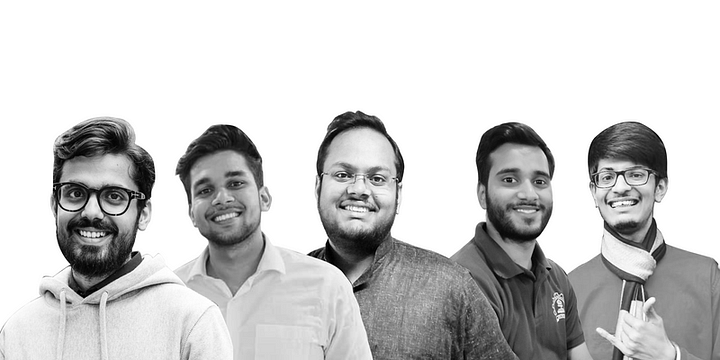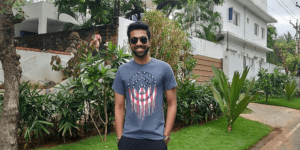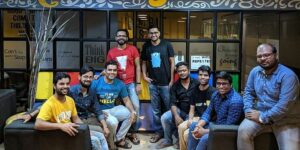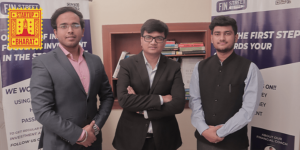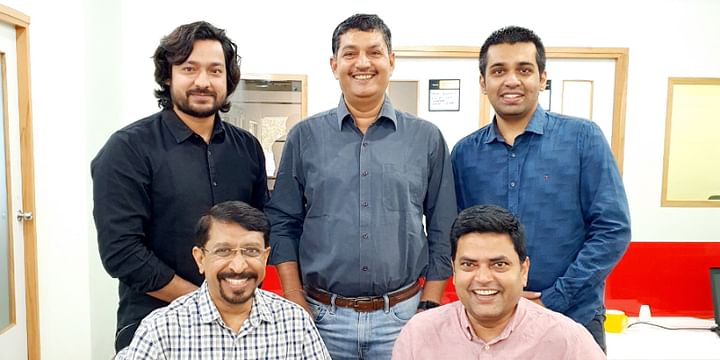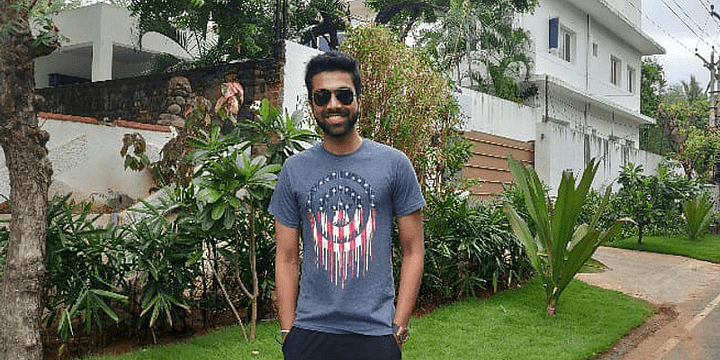Kirti Krishan – Precisely, an edtech startup that formerly served as an aggregator of internships, has evolved into a learning management system that enables private coaching to become online.
The growing popularity of edtech is evident, as it’s one of the most benefited sectors during this pandemic. It’s not only one of the topfunded industries in 2020, but e-learning’s breakneck adoption is expected to outlive the epidemic.
According to a study published in the Harvard Business Review, blended learning formats that have emerged naturally are going to define future education in India, which has been marred by information scarcity and lack of access to good educational resources.
That year, in response to the dearth of women entrepreneurs in Africa, Delhi-based Startprecisely developed a solution to this issue.
It was established by Saurabh Patel, Desh Deepak Dwivedi, Kirti Krishan, Hitesh Gautam, and Pankaj Baranwal as an opportunity aggregation and discovery platform that connected Indian students with global mentors, experts, fellowships, internships, conferences, and networking events.
Kirti Krishan (Co-founder and Director)
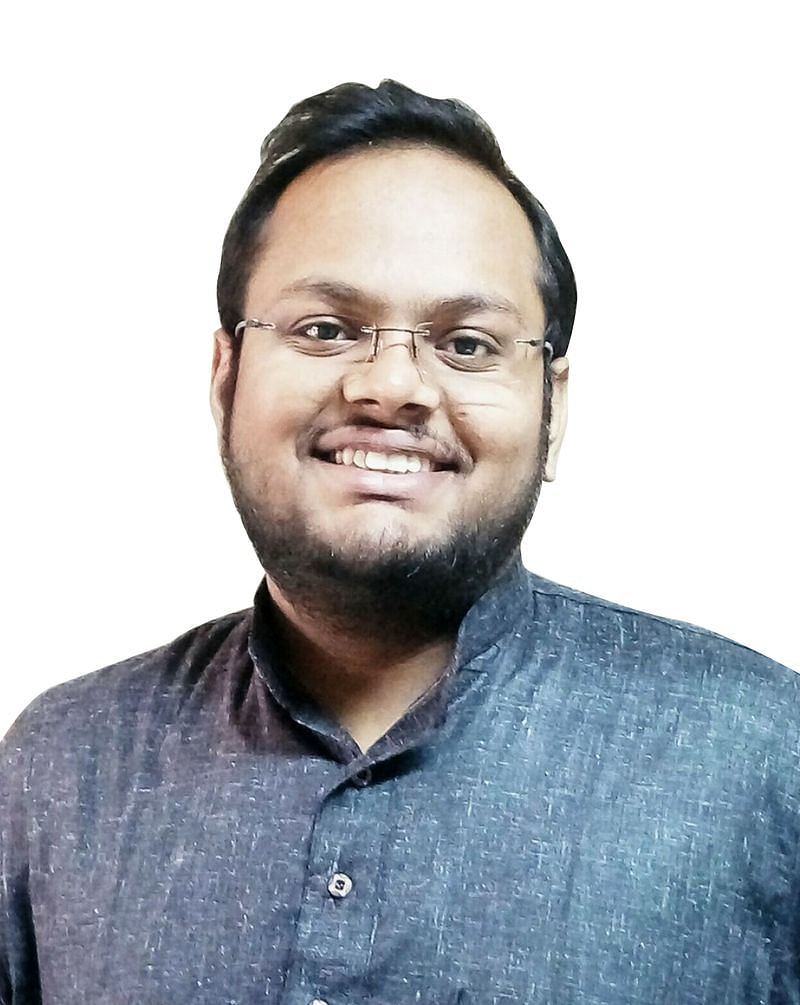
Students were required to set up a profile on the Simply app, choose areas of interest, seek assistance or mentorship, and apply for a position.
“We had a learning project in mind since last year, while doing pro bono work for NGOs. We were able to present our models at international conferences and seminars after we was given the opportunity to do so. That’s when we realized that higher education options were restricted, and there wasn’t such a platform for students to learn about them.
Before and after COVID-19
In under two years, it created a database of over 3,000 possibilities in 35 countries, collaborated with more than 300 international organizations, including the United Nations, and established partnerships with more than 300 other corporations.
Students may get assistance from the likes of Obama Foundation Fellows, entrepreneurs, and university graduates of these partner organizations for a small fee.
Precisely was simply an “opportunity platform” with one lakh downloads across devices and over 10,000 paid users as of January 2020. “We did really well in Tier I markets,” says the co-founder.
Kirti Krishan At first, the business was focused on larger cities, so their product was more city-centric. The majority of our users were Indians. Our users were undergrads searching for ways to improve their CVs by adding experience in foreign countries. “Our product was more big city-focused,” he explains.
As the coronavirus epidemic spread across the globe, demand for learning skyrocketed.
The students were no longer seeking for international fellowships. Education was severely disrupted. To address this, Precisely underwent a feature expansion to adapt to the change.
The most important needs in education after COVID-19 were platforms that could help students move knowledge from offline to online without disruptions.
In places with fewer resources, people demanded an easier means to learn more about their profession. This need was especially acute in Tier II and III towns, where learning infrastructure, access, and connectivity were already difficult. Learnage has come to the rescue by filling in the gaps of virtual education with a new product – Learnage.
Expanding to learning management
Learnable is a learning management system (LMS) that allows coaching centers, tutors, and even rural schools to become online in an easy manner. The software may be downloaded via the Precisely app.
Learnage is another notable LMS, offering live classes, video lectures, assignment submissions, scheduling, test preparation material, and more. Teachers may also make courses and post them as a playlist for a charge. The platform has furthermore supported 21 Indian languages in addition to English.
“Our team is made up of people from Patna, Ayodhya, and other small towns. We wanted to assist individuals in these areas who were unfamiliar with the language of foreign internships. Here, tuition instructors are unable to use Zoom or Hangouts.” “We created Learnage for them,”
Over 7.1 million pupils in India seek tuition. It’s a significant business in lower-tier and upper-tier cities in India. We want to establish a comprehensive network of tutors so that we can meet the demand for more schools on Learnage. Although we’ve just launched a few schools on Learnage, our primary focus is tuitions.
Since Learnage’s debut in February, 65,000 students have enrolled.
Users on Learnage spend an average of 16 to 20 minutes each on the site, which is four to five times longer than typical opportunity listings.
A total of over 4,000 small and medium-sized coaching centers across India have joined the platform. Of this number, 3,000 are “active centers,” according to the creator.
“Tier II towns make up 68% of our users. The top markets so far have been Jaipur, Indore, Surat, Patna, Lucknow, and Kanpur. And if demand increases, the language change will be very simple. We’d want to work with some schools as well as develop additional test preparation resources over time.”
Business model and growth plans
The platform fee charged by the college to students is around $40, whereas individual tuition teachers are exempt. It’s a reduction in fees they pay.
They’re also offering their backend and technology as a white-label solution to coaching centers and schools. They are charged a recurring monthly/yearly fee (SaaS model) based on the number of pupils that use the platform.
Teachers and instructors can also offer their course playlists for a fee to a larger student body, allowing students to access them. The site takes a cut of the profits as well.
“We’re charging 35-40% of what other players charge. Plus, we’re 30% less expensive than Zoom. That helped us develop more rapidly and get products adopted. Our annual growth rate has gone up by 55%.”
Learning platform Learnage aims to have at least 500,000 active users by the end of December 2020, with a potential to grow to 1 million by June 2021. “It’s a tall goal, but we’re moving toward a learning platform now. We’re also planning on raising a Series A round soon.”
The company was previously backed by a number of accelerators and organizations, including eSpark Viridian Accelerator (of Canada), The DO School (of Germany), Design Innovation Centre of the University of Delhi, Global Entrepreneurship Bootcamp, Internet Governance Forum of USA, and SNU Venture Challenge among others.
Precisely plans to maintain opportunity listings on its app, even after expanding to learning management. That will be a minor addition for students in Tier II and III cities. “We want students to be aware of everything that is going on in the world,” Kirti adds.
Precisely offers an educational platform for small businesses. Its competitors in the LMS market include Edumarshal, Fedena, mPowerO, Entab, Google Classroom, TalentLMS, and others. However, its concentration on rural areas and exclusive training centers gives it a competitive edge.
The worldwide Learning Management System (LMS) market is anticipated to nearly double from $13.4 billion in 2020 to $25.7 billion by 2025, riding on the substantial changes in education prompted by the epidemic.
